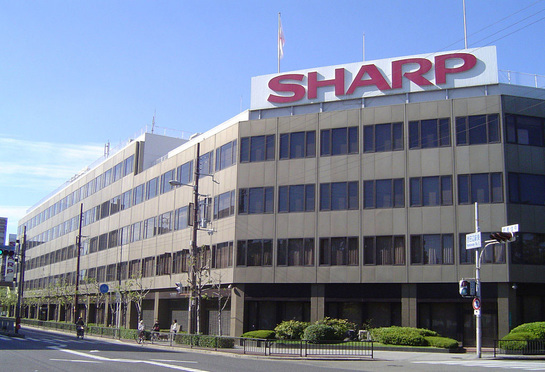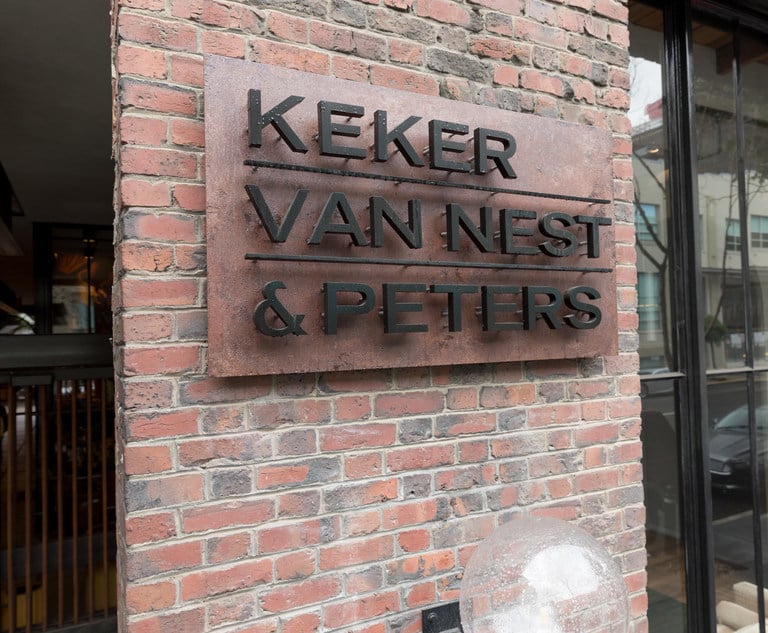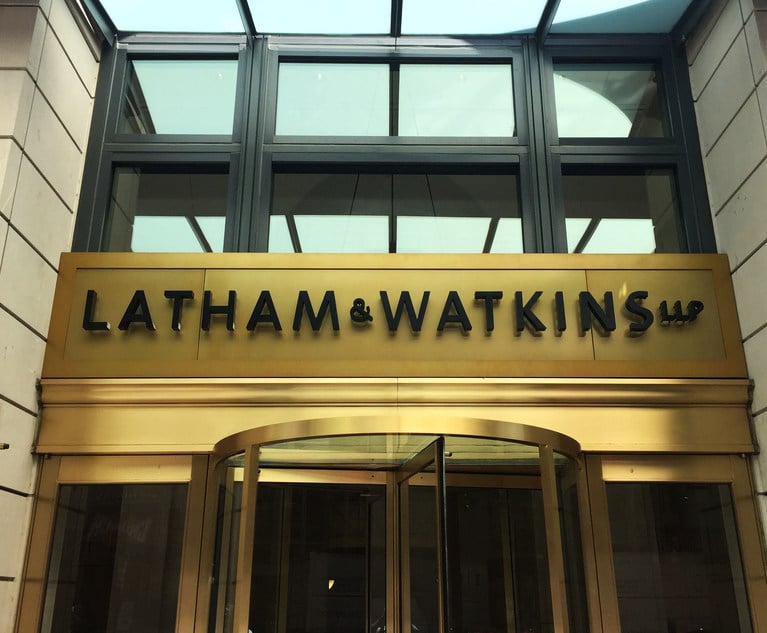Judge Wrestles With Sharp Electronics' Bid to Quash Arbitration Gag Order
Sharp says the one-sided gag order prevents it from communicating with the FCC, in violation of its First Amendment rights and U.S. public policy.
October 27, 2017 at 03:33 PM
3 minute read

A federal judge in Washington, D.C., heard arguments Friday in a novel case that asks whether a private arbitrator's emergency gag order against Sharp Electronics should be declared unenforceable.
Sharp sued Chinese manufacturing company Hisense and its U.S. subsidiary in August. The two companies are in ongoing arbitration proceedings in Singapore, as Sharp tries to end its licensing deal allowing Hisense to sell Sharp TVs in the United States. An arbitrator in that proceeding issued an “emergency” order preventing Sharp from talking publicly about the dispute, though no such restriction was imposed on Hisense. Sharp also sued Hisense in California earlier this year, accusing the company of poorly manufacturing and deceptively advertising Sharp TVs.
 James Boasberg. Photo by Diego M. Radzinschi/ALM
James Boasberg. Photo by Diego M. Radzinschi/ALMSharp's lawyer, Venable's Randy Miller, told U.S. District Judge James Boasberg of the District of Columbia on Friday that the gag order is unenforceable under a provision in the New York Convention because it is contrary to U.S. public policy. Sharp wants to communicate with the Federal Communications Commission about possible safety issues with the TVs Hisense is selling, but cannot do so because of the gag order. Miller said the gag order therefore violates the public policy of the United States to allow private entities to petition the government under the First Amendment.
Miller said the “elephant in the room” was that due to the gag order, which Sharp is currently honoring, the company's “speech rights are at minimum chilled” and potentially “destroyed.”
But Boasberg had questions about personal jurisdiction. He pushed Miller on whether the lawsuit could even be brought in D.C. because Hisense is a Chinese company and the arbitration is in Singapore. Miller replied that Hisense both sold TVs in the district and communicated with the FCC in Washington. Sharp also alleges that Hisense is a state-owned entity, and D.C. Circuit precedent restricts the ability of foreign entities to assert a personal jurisdiction defense. But Boasberg appeared skeptical.
“I don't know if you quite get there,” Boasberg said.
Arguing on behalf of Hisense, David Hille of White & Case told the judge that Sharp had multiple other avenues to challenge the emergency order, but that Washington, D.C., was not one of them.
Hille said the plaintiffs could bring challenges in the courts in Singapore, with the emergency arbitrator who issued the order or in the ongoing arbitration. He added Sharp is trying to “manufacture jurisdiction.”
Hille also told the judge that Sharp is simply trying to do anything to get its “brand back” from Hisense, pointing to what he said was a “barrage of litigation” the company has filed in D.C. and California in addition to the arbitration.
“It rings hollow,” Hille said of Sharp's argument.
Boasberg told the parties that he would try to issue a decision in two weeks. He added doing so will not be easy, and that the case presented complex questions he would need to address.
This content has been archived. It is available through our partners, LexisNexis® and Bloomberg Law.
To view this content, please continue to their sites.
Not a Lexis Subscriber?
Subscribe Now
Not a Bloomberg Law Subscriber?
Subscribe Now
NOT FOR REPRINT
© 2025 ALM Global, LLC, All Rights Reserved. Request academic re-use from www.copyright.com. All other uses, submit a request to [email protected]. For more information visit Asset & Logo Licensing.
You Might Like
View All
K&L Gates Secures $10.5M Verdict for Washington Meat Retailer in Lawsuit Over 'Boneless' Chicken Product

Why Uber's MDL Consolidation Fight at 9th Circuit May Be One to Watch

Pac-12, Represented by Keker, Sues Mountain West Conference Over 'Unlawful' Poaching Penalty

Latham & Watkins Secures Breach-of-Contract Damages in CoStar CRE Database Access Lawsuit
3 minute readTrending Stories
Who Got The Work
J. Brugh Lower of Gibbons has entered an appearance for industrial equipment supplier Devco Corporation in a pending trademark infringement lawsuit. The suit, accusing the defendant of selling knock-off Graco products, was filed Dec. 18 in New Jersey District Court by Rivkin Radler on behalf of Graco Inc. and Graco Minnesota. The case, assigned to U.S. District Judge Zahid N. Quraishi, is 3:24-cv-11294, Graco Inc. et al v. Devco Corporation.
Who Got The Work
Rebecca Maller-Stein and Kent A. Yalowitz of Arnold & Porter Kaye Scholer have entered their appearances for Hanaco Venture Capital and its executives, Lior Prosor and David Frankel, in a pending securities lawsuit. The action, filed on Dec. 24 in New York Southern District Court by Zell, Aron & Co. on behalf of Goldeneye Advisors, accuses the defendants of negligently and fraudulently managing the plaintiff's $1 million investment. The case, assigned to U.S. District Judge Vernon S. Broderick, is 1:24-cv-09918, Goldeneye Advisors, LLC v. Hanaco Venture Capital, Ltd. et al.
Who Got The Work
Attorneys from A&O Shearman has stepped in as defense counsel for Toronto-Dominion Bank and other defendants in a pending securities class action. The suit, filed Dec. 11 in New York Southern District Court by Bleichmar Fonti & Auld, accuses the defendants of concealing the bank's 'pervasive' deficiencies in regards to its compliance with the Bank Secrecy Act and the quality of its anti-money laundering controls. The case, assigned to U.S. District Judge Arun Subramanian, is 1:24-cv-09445, Gonzalez v. The Toronto-Dominion Bank et al.
Who Got The Work
Crown Castle International, a Pennsylvania company providing shared communications infrastructure, has turned to Luke D. Wolf of Gordon Rees Scully Mansukhani to fend off a pending breach-of-contract lawsuit. The court action, filed Nov. 25 in Michigan Eastern District Court by Hooper Hathaway PC on behalf of The Town Residences LLC, accuses Crown Castle of failing to transfer approximately $30,000 in utility payments from T-Mobile in breach of a roof-top lease and assignment agreement. The case, assigned to U.S. District Judge Susan K. Declercq, is 2:24-cv-13131, The Town Residences LLC v. T-Mobile US, Inc. et al.
Who Got The Work
Wilfred P. Coronato and Daniel M. Schwartz of McCarter & English have stepped in as defense counsel to Electrolux Home Products Inc. in a pending product liability lawsuit. The court action, filed Nov. 26 in New York Eastern District Court by Poulos Lopiccolo PC and Nagel Rice LLP on behalf of David Stern, alleges that the defendant's refrigerators’ drawers and shelving repeatedly break and fall apart within months after purchase. The case, assigned to U.S. District Judge Joan M. Azrack, is 2:24-cv-08204, Stern v. Electrolux Home Products, Inc.
Featured Firms
Law Offices of Gary Martin Hays & Associates, P.C.
(470) 294-1674
Law Offices of Mark E. Salomone
(857) 444-6468
Smith & Hassler
(713) 739-1250










